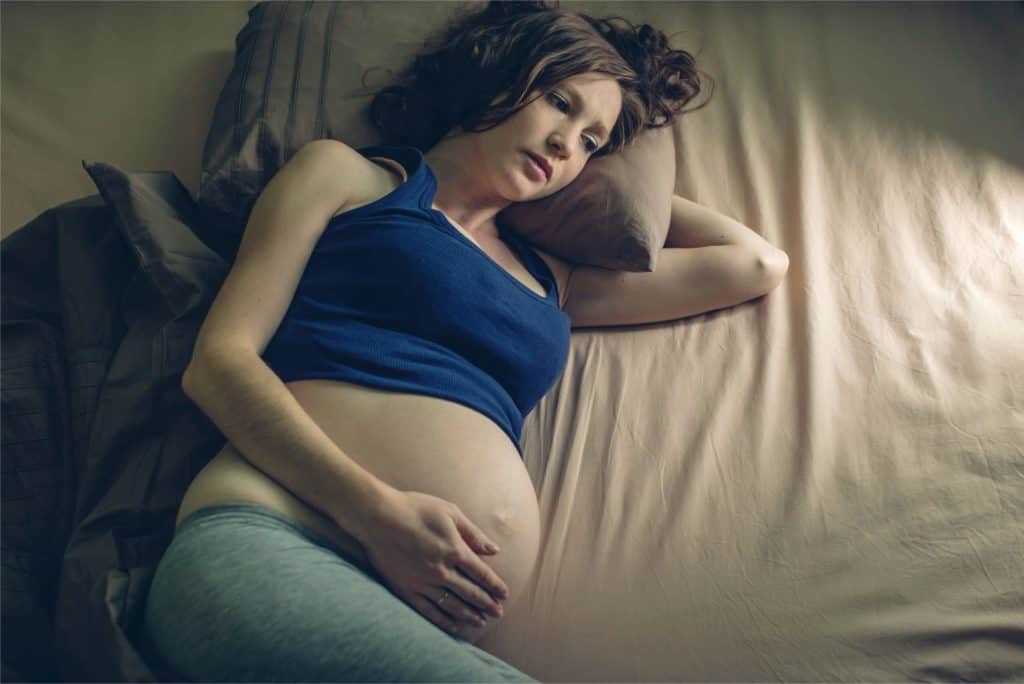
Table of Contents
Do you feel weighed down due to an overshadowing desire to curl up in the bed all day during pregnancy? Welcome to the world of fatigue during pregnancy. Fatigue or tiredness during pregnancy is a common situation that all women find themselves in, especially during the first and the third trimester.
Here’s everything you need to know about fatigue during Pregnancy and more; remember, you are never alone!
First things first: What does pregnancy fatigue feel like ?
Fatigue during Pregnancy, like fatigue in general, might feel like a constant episode of tiredness and lack of energy. It is not only the struggle to get out of bed in the morning but also, a lingering desire of staying curled up all day. This fatigue and feeling of being persistently exhausted or sluggish are considered normal, and it is estimated to affect as many as 60 percent of all pregnant women.
When does pregnancy fatigue start ?
Fatigue during pregnancy can start to show its elements as early as in the first few weeks after conception. Fatigue typically starts getting better and less draining only around the start of the second trimester, only to return in its full might around the third trimester.
What causes pregnancy fatigue ?
A number of factors and reasons can be called out as a cause of pregnancy fatigue. In the first trimester, you might be feeling pregnancy fatigue because of the following reasons-
1. Your body is building the placenta
The placenta is manufactured by the body of a pregnant woman as an organ that supplies nutrients and oxygen to the baby. Since it is a whole new organ, you can only imagine the kind of work your body undertakes and how exhausting it would be, hence, the fatigue.
2. Hormonal imbalance
The levels of various hormones like progesterone, estrogen, and hCG (pregnancy hormone) peak in a woman’s body for multiple reasons. For example, the production of progesterone amps increases the production of milk glands required for breastfeeding after the baby is born. This sudden imbalance of hormones thereby causes fatigue.
3. Increased blood supply
As a pregnant woman, you essentially are a package of two human beings and hence, your body starts to pump, create and pump extra blood to be able to support the extra human being within, causing fatigue.
4. Apart from these aforementioned reasons, your body is also going through multiple changes from within like the metabolism boosts, heart rate goes up, BP and blood sugar levels go down, causing you to feel weighed down aka in a state of constant fatigue.
As you near the end of the first trimester, your body essentially begins to get used to this monumental change, and hence, you’d begin to feel less tired and more active by the beginning of the second trimester. However, fatigue typically returns by the time you enter the third trimester of pregnancy.
Multiple reasons causing fatigue in the third trimester of pregnancy include a rapidly growing baby, the anxiety of having a baby, and also the multitasking you’d have to commit to. Since your body is persistently working to support the growth of a healthy baby, multiple pregnancy pains like round ligament pain and backache are also commonly experienced along with the infamous fatigue.
What are the remedies to cure fatigue during Pregnancy?
Fatigue of any form, and not just pregnancy fatigue, is generally considered as your body’s way of telling you to slow down and to take rest. So, while taking rest, taking it easy, and cutting yourself some slack remains the most relevant and recommended remedy to free yourself the fatigue, some other remedies to cure pregnancy fatigue include-
1. Focus on a healthy diet
Since your body is already overworked, you should focus on supplying it with nutrient-rich foods to compensate for all the extra work you’re forcing it to do. A healthy, balanced diet (along with all the pregnancy-craving-junks of course), can help keep your energy levels stable all day. Since all bodies are different, it would also be a good idea to speak to your doctor or consult a nutritionist to figure out a diet plan that works best for you and the baby.
2. Eat often
Instead of taking three huge meals, try and eat six small meals or at least a lot of periodic snacks to keep yourself up and running through the day. Frequent snacking not only stabilizes the blood sugar levels to reduce fatigue but also helps find relief from other pregnancy-related troubles like morning sickness and constipation.
3. Exercise
Though this might sound a little too demanding, exercising can help you get rid of pregnancy fatigue. Exercise releases mood-boosting hormones called endorphins that can instantly improve your mood, make you feel less burdened, and even help you get better sleep at the end of the day. If exercising is not your thing, you could even just take quick walks down the block or consider prenatal yoga.
4. Acupuncture
Acupuncture, alternative therapy or treatment that inserts needles at specific points in the body to relieve pains of sorts can also be tried to reduce pregnancy fatigue, backache, or even nausea.
5. Cut down on caffeine
Caffeine and other energy-boosting sugary foods like candies or soda can sure help you get the boost of energy you’re looking for in a fatigue-filled day, however, it can also cause you to shut down eventually, causing more harm than cure.
6. Take quick naps
Above all, remember to not feel obligated to stick to your pre-pregnancy schedule and try to take naps whenever you feel the need to rejuvenate. Quick power naps between work could be helpful, do not wait for your bedtime! Quick naps or just lying down with your feet elevated will also help you find relief from swollen-pregnancy-ankles.
7. Involve your family
If you already have kids, try and involve them as well as your partner and parents to help you through your low days. Always remember it is okay to ask for help and you do not need to be a superwoman who does everything by herself- there’s nothing you need to prove to anyone. Besides, a quick leg massage from your partner can hurt no one!
Fatigue during Pregnancy, Final Takeaway: When To Call A Doctor ?
As established, Fatigue during Pregnancy is common, however, if you have a reason to believe that you feel more tired than you should or that there could be an underlying reason for all this slug, do not hesitate to reach out to your doctor. There could be multiple reasons for overbearing fatigue, and not just your harmless baby; hence, reaching out to your doctor should never not be a double-thought.
Some underlying conditions that might cause unbearable fatigue during pregnancy include severe anemia, thyroid problems, gestational diabetes, prenatal depression, and even chronic fatigue syndrome. Do not hesitate and speak to your doctor today!
Fatigue During Pregnancy FAQs
1. What is prenatal depression ?
2. What is Gestational diabetes ?
3. What is chronic fatigue syndrome ?
Sources:
Reviewed By:

Esha Chainani - Obstetrician and Gynaecologist
Dr. Esha Chainani is an Obstetrician, Gynaecologist, and laparoscopic surgeon who aims to break the stigma around women’s health by advocating an inclusive and open practice of obstetrics and gynecology and an author of several internationally published research papers and health articles in the media like the Swaddle.
She also founded Premaa, a non-profit to reduce maternal morbidity and eventual maternal mortality by providing lower-income pregnant women living in urban areas with cell phone access through an app that can feature an entire section about contraception as well for a whole gamut of reproductive health.
A panel for multiple health sessions including with the UN, USAID, BMC, gender at work, and multiple non-profit organisations, and is on the advisory panel of the South Indian medical students association.




